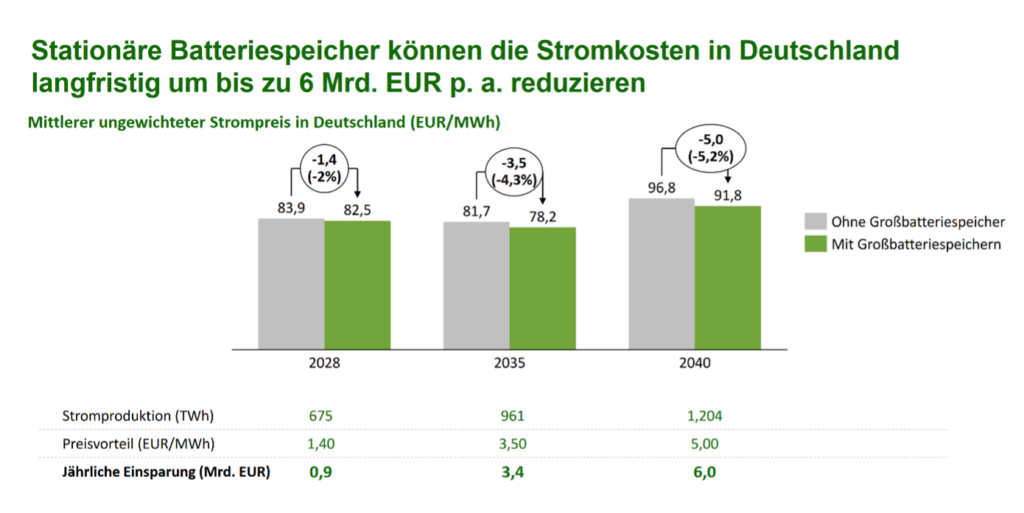Storage facts series (I) | An analysis by the Fraunhofer Institute for Solar Energy Systems for GESI underlines: Storage systems are a decisive lever for an affordable energy transition.
Large-scale batteries can significantly reduce electricity prices and thus make an important contribution to strengthening Germany as a business location and the competitiveness of our economy. This is shown by calculations by the Fraunhofer Institute for Solar Energy Systems, which we would like to share with you here.
The key message: the consistent expansion of large-scale battery storage capacities can reduce electricity costs in Germany by up to six billion euros per year in the long term. This corresponds to a reduction in the price of electricity of six to seven percent (see chart).
The main reason for this is that we have to throttle wind and solar parks less often thanks to the storage facilities and can therefore better exploit the potential of renewables. This in turn means that Germany imports less electricity and consumes less fossil fuels.
And for those who now object that the savings of six billion will not be achieved until 2040: With an accelerated expansion of battery energy storage systems (BESS), we can get there much sooner. The later we set the course, the longer citizens and companies will have to pay unnecessarily high electricity prices – at the expense of purchasing power, investments and jobs.

Source: Fraunhofer ISE (2024)

